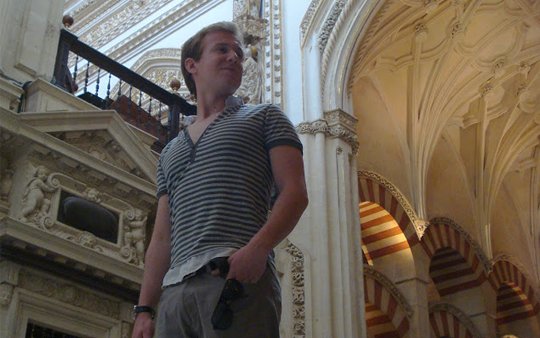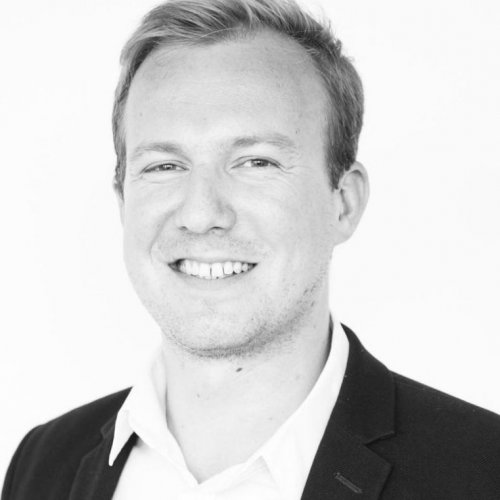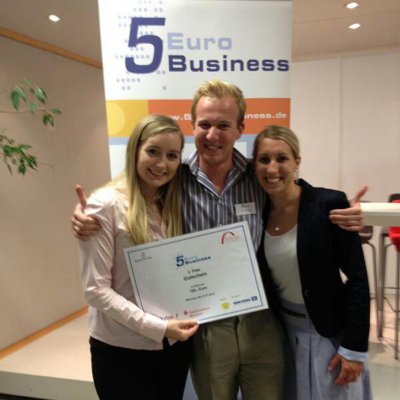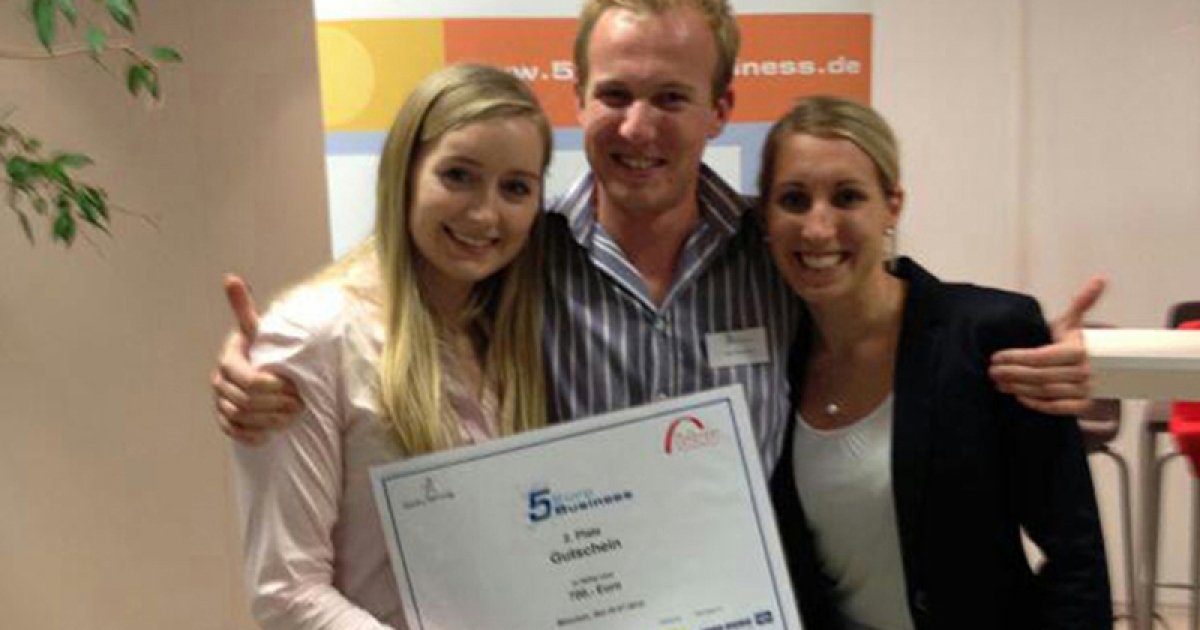“The Future Depends Upon What You Do Today”
Max is from Germany. During his undergraduate studies, he led a team of three consultants on a pro bono base to develop a social media strategy for AIAS e.V. an organisation dedicated to fighting Leukemia. The strategy their team developed and implemented contributed significantly to an increase of registered stem cell donors from below 500 to over 6000 over the four months project period, which was not only a success for the organisation but one he hopes even saved human lives. His GTF Mentor is Chris W. Gaunt.
Q: Tell us a few things about your country, and also your life’s story!
A: I was born and raised in Germany. Like most places in the world, I experienced it as a country with its up- and downsides. While the quality of life is high and most people have a high level of awareness for sustainability issues, the global perspective on things can get missed out sometimes. Here are a few cornerstones of my life so far. I did my A-Levels in Munich, Germany, focusing on English, History and Geography. After my A-levels, I did a (back then mandatory) year of community service, which I chose as an alternative to military service.
This was followed by a Bachelor’s degree in Political Science and Sociology at the LMU University. During my undergraduate studies, I developed a keen interest in business and social entrepreneurship. As a student consultant, I advised organisations in a range of sectors ranging from bluechip companies, such as Siemens, to pro bono consulting for non-profit organisations addressing social welfare instead of improving the bottom line. Furthermore, I won, along with a team of gifted students, the second prize in a state-wide start-up competition. My desire to widen my perspective and address large-scale challenges led me to my master studies of Carbon Management at the University of Edinburgh. As a class representative for 32 students from seven nations, I studied with great passion in a world-leading programme about the economics and science of climate change and sustainability. Currently, I am working as an entry-level energy analyst at an Ecova UK, an energy consultancy.
Q: What is your view of the world as it is today? And how do you define the concept of a better world?
A: While we have seen an unprecedented success story of poverty alleviation in the last two decades accompanied by an increasing awareness about climate change, emancipation and equality of rights, I feel that the world will also need to address some key challenges to move forward. A better world needs to establish and implement a shared understanding of true sustainability. We will need to find a way to utilise our resources so that they benefit societies around the globe as a whole, instead of a narrow focus on the bottom line. Instead of striving for an equality of outcomes, we could lay the foundation for a more just society by creating equality of opportunities in the first place. Welfare-oriented economic frameworks which stringently internalise external costs can deliver practical solutions for a more just political framework, while technological advantage offers us tools to create a better life on the micro level. Besides a responsible integration of AI into our societies, sustainable energy will be the most promising solution to deliver wealth for the poorest parts of the world. The correlation between energy prices (and access to energy) and poverty is remarkable in a sad way. By promoting research on increasingly sophisticated and cheap storage and renewable energy technologies, we have a clear pathway to support those who did not have the chance to benefit from previous developments.
2. Promoting a dialogue with our European partners to actively address the challenge together, to maintain the pillars of the European Union: Solidarity between its member states and the freedom of movement and,
3. Scale up the support of political, monetary and other resources to promote a constructive peace process in the Middle East.
Q: As a young individual what are a few of the hurdles that you had to overcome up until today?
A: 1. Stretching my knowledge in various fields beyond my core academic programme during my undergraduate studies to constructively engage in a student-led consultancy that would allow me to gain reallife experience in the third sector and business world and,
2. Successfully preparing and applying for a full scholarship at the University of Edinburgh to overcome my financial constraints which would not have allowed me to study abroad otherwise. My sincere thanks at this point to the University of Edinburgh and the Scottish government that made this possible.
Q: Why is the role of a mentor important for you?
A: While I have the belief that my past experiences provide a sound basis for my future endeavours, receiving feedback and guidance from experienced thought leaders will be crucial to develop my skills and take my ambitions and goals to the next level. This will help me to aim and achieve higher while learning a great deal about ethical leadership and thereby serve the global community in the best possible way.

Q: Do you have a lesson that life has taught you and you would like to share?
A: Be persistent, but know the odds. If your chance to succeed is one in ten, beat the statistics by trying more than ten times. Try to get a grasp of the odds beforehand though, and ask yourself if you are willing to invest what it takes to beat these odds.
Q: Name a project, a foundation or a person in your country that you think is doing great work in helping improve other people’s lives!
A: AIAS e.V., an organisation who raises awareness for leukaemia and promotes stem cell donations. A great, young and inspiring team which achieved much with little resources.
Q: Share with us a phrase, a poem or a story that you love or you find interesting!
A: The future depends on what you do today.




